American School for the Deaf Hopes to Use $2 Million in Federal Funds to Increase Support Services

Audio By Carbonatix
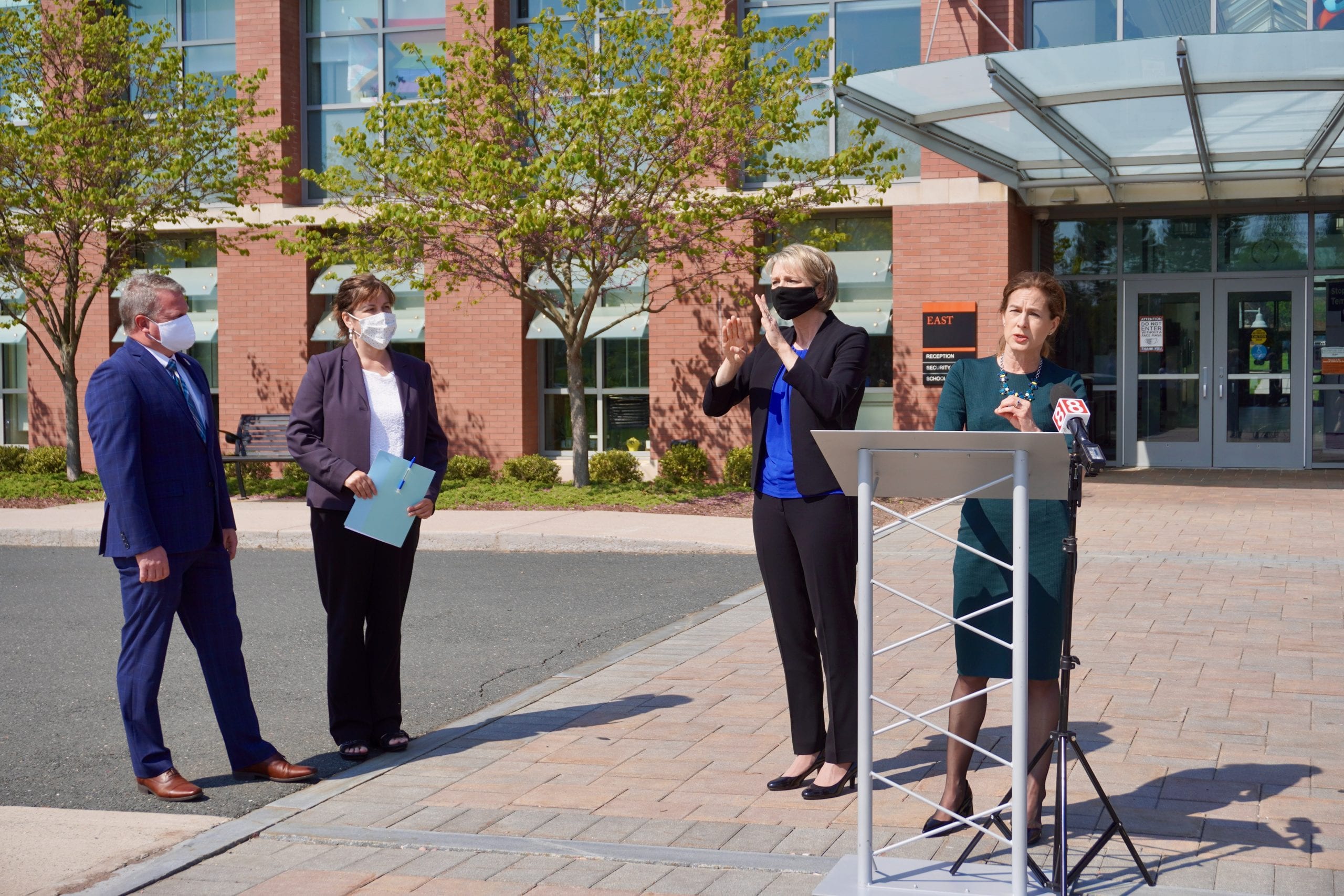
Lt. Gov Susan Bysiewicz speaks at American School for the Deaf in West Hartford on May 12 about $2 million of federal funding earmarked for the school. Photo credit: Ronni Newton
ASD Executive Director Jeffrey Bravin said the deaf community has faced myriad challenges during the pandemic, and the $2 million will be used to address deficiencies in support services.
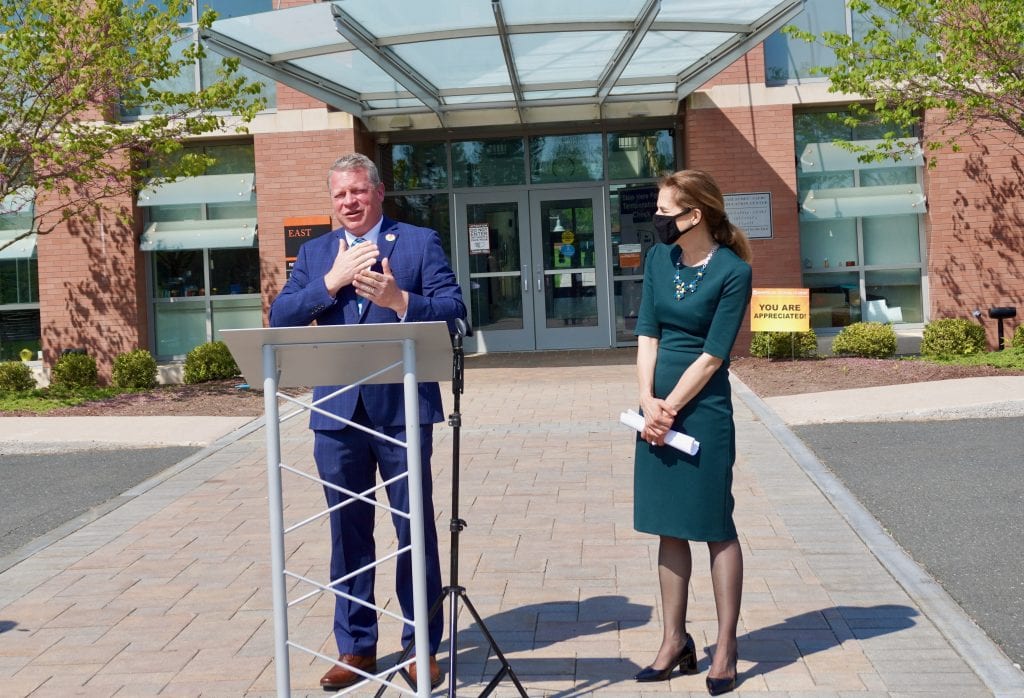
American School for the Deaf Executive Director Jeffrey Bravin with Lt. Gov. Susan Bysiewicz at a press conference on May 19. Photo credit: Ronni Newton
By Ronni Newton
Lt. Governor Susan Bysiewicz was joined by Department of Aging and Disability Services Commissioner Amy Porter and American School for the Deaf Executive Director Jeffrey Bravin in West Hartford Wednesday to speak about Gov. Ned Lamont’s proposed allocation of $2 million of the state’s roughly $6 billion in American Rescue Plan Act funds to address unique needs of the deaf and hearing impaired community.
Among the key areas in which the state plans to invest its federal funding, Bysiewicz said, is to “modernize the delivery of services.” The allocation of the funds must be approved by the legislature.
“We know that virtual meetings and gatherings often don’t provide key technology needed by the deaf and hard of hearing,” Bysiewicz said.
While the COVID-19 pandemic has been difficult for everyone, Bravin, speaking in American Sign Language, highlighted some of the unique challenges faced by the deaf, deaf-blind, and hard-of-hearing community.
Many individuals who are deaf or hard of hearing rely on lip reading, which is impossible when someone is wearing a cloth mask. And while clear masks exist, they are of varying quality and many are much more uncomfortable than cloth masks. Prototypes of more comfortable clear masks are now available, Bravin said, and he would like to be able to examine them for possible use in the future.
The news, even with captioning, is not always accessible in the way to the deaf, hard-of-hearing, or deaf-blind community, Bravin said. “If there’s breaking information, our community should have that information simultaneously. There should not be a delay.”
ASD transitioned some students to remote learning when the pandemic hit, “but many of the online platforms are really geared to meet the needs of hearing people,” Bravin said. Many of the platforms are based on voice recognition, and adaptations are needed to meet the needs of those who use American Sign Language. The interpreter may be somewhere in the Zoom meeting, he said, but not always visible.
Bravin thanked the state administration and said that Connecticut is “setting the standard” through their investment in accessibility, Bravin said.

Amy Porter, commissioner of the Department of Aging and Disability Services, speaks at a press conference in West Hartford on May 19. Photo credit: Ronni Newton
Creating accessible messaging is more time-consuming, and it’s been difficult to find technology that can keep up with the rapidly changing pace of information during the pandemic, Porter said.
Making appointments at vaccine clinics was difficult to access for everyone at first, and even with most now being walk-up clinics, if someone doesn’t speak the same language – can’t communicate through American Sign Language – that creates a barrier, Porter said.
It’s also difficult for deaf individuals to navigate the vaccination clinic protocols without someone who can communicate in American Sign Language. Hartford HealthCare has partnered with ASD to offer several targeted clinics for ASD students and the deaf community statewide, with American Sign Language interpreters, including a clinic held Wednesday afternoon at the Connecticut Convention Center.
Porter said in addition to investments in clear masks and interpreters at vaccine clinics, and in the future there will be informational videos available in American Sign Language.
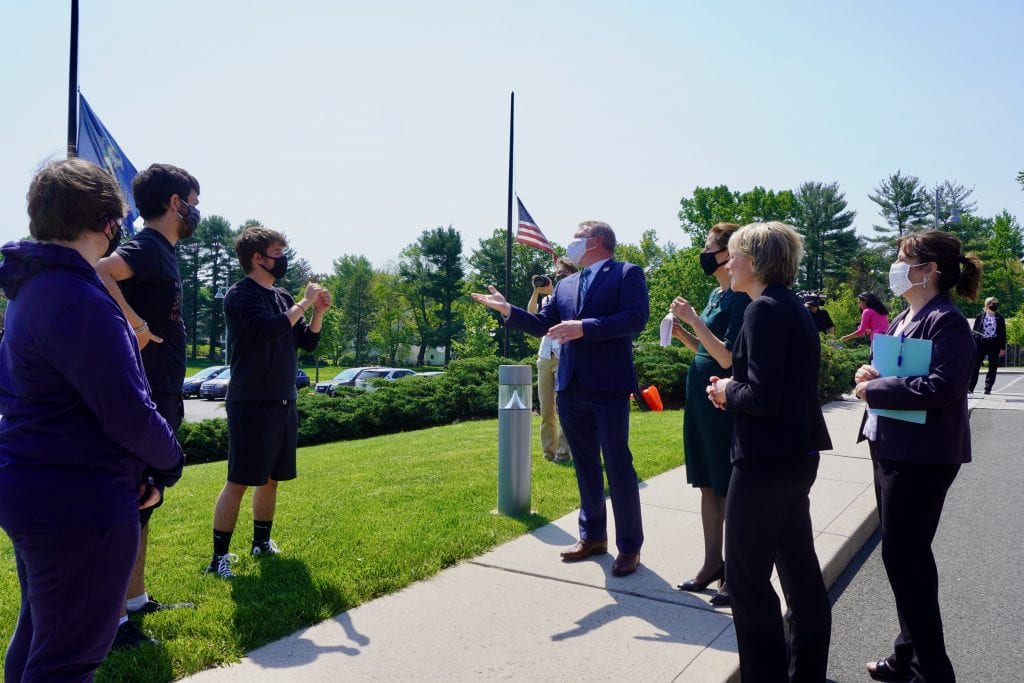
Following the press conference on May 19, Lt. Gov. Susan Bysiewicz and Commissioner Amy Porter speak with some ASD students. Photo credit: Ronni Newton
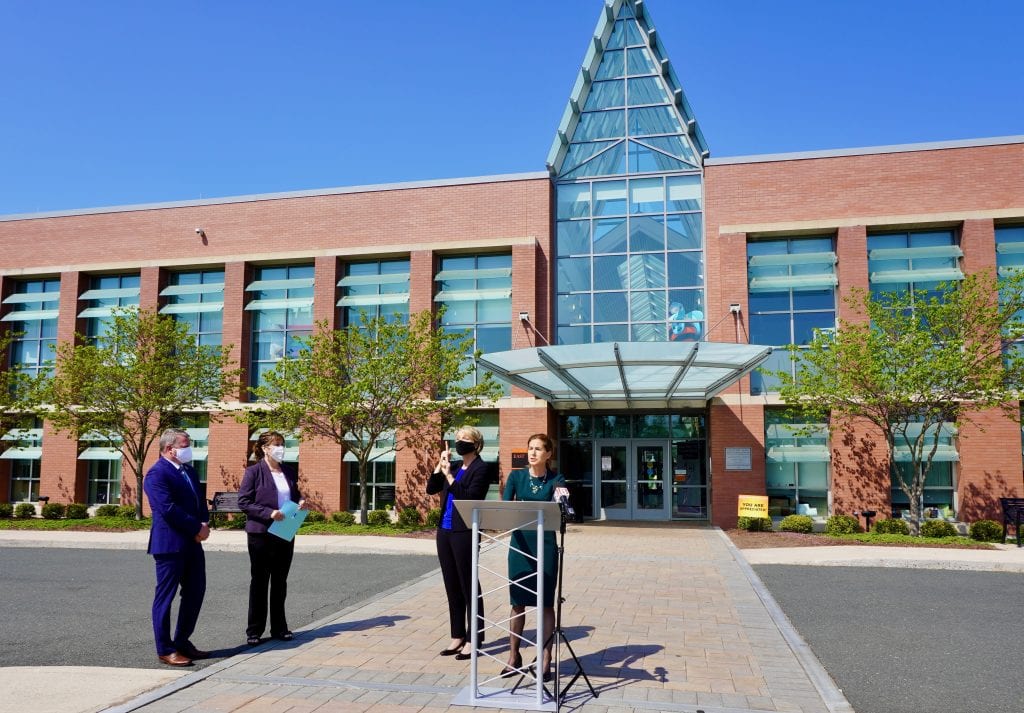
Officials discuss $2 million in federal COVID-19 funding to increase support services at American School for the Deaf in West Hartford on May 19. Photo credit: Ronni Newton
Like what you see here? Click here to subscribe to We-Ha’s newsletter so you’ll always be in the know about what’s happening in West Hartford! Click the blue button below to become a supporter of We-Ha.com and our efforts to continue producing quality journalism.


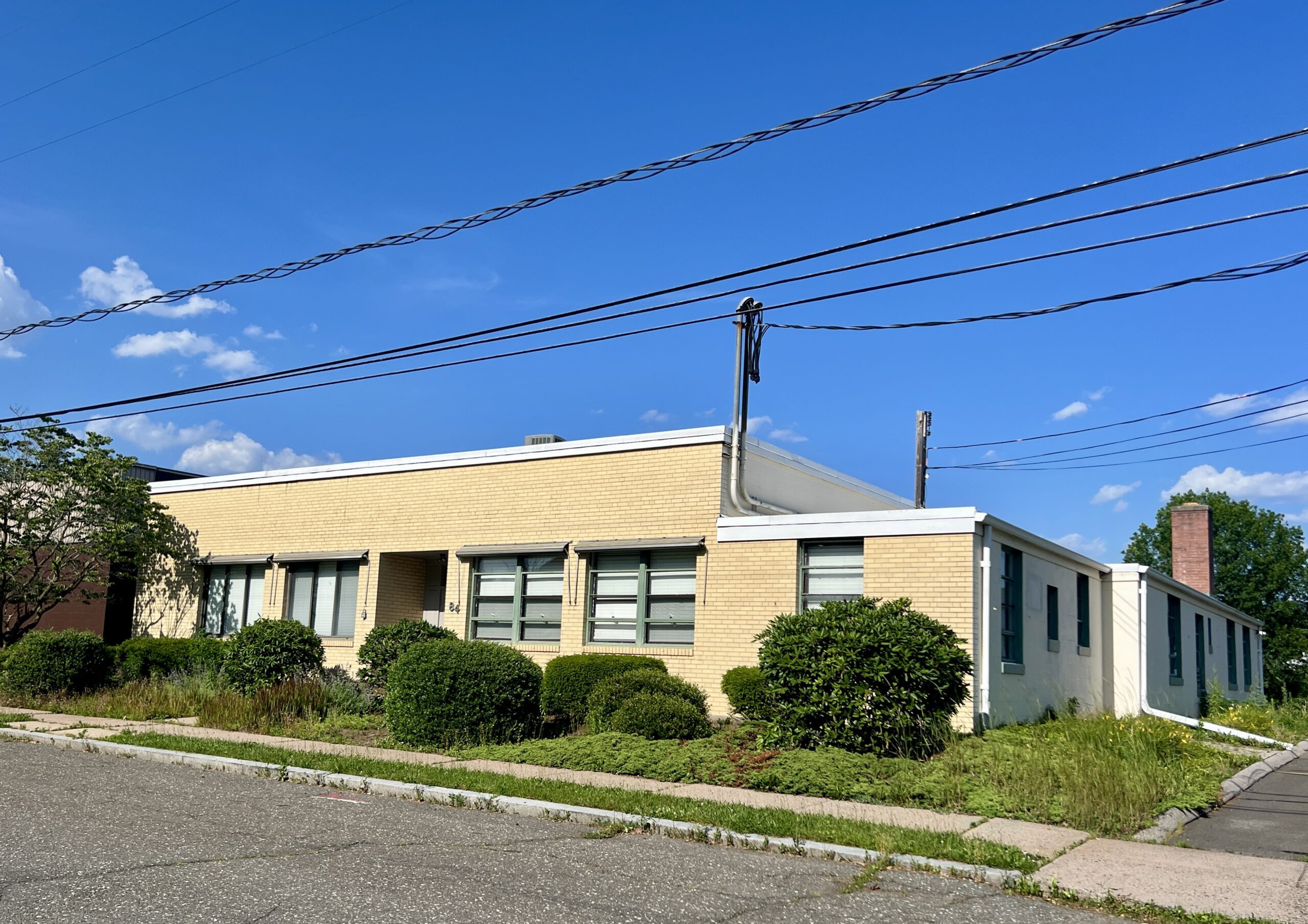
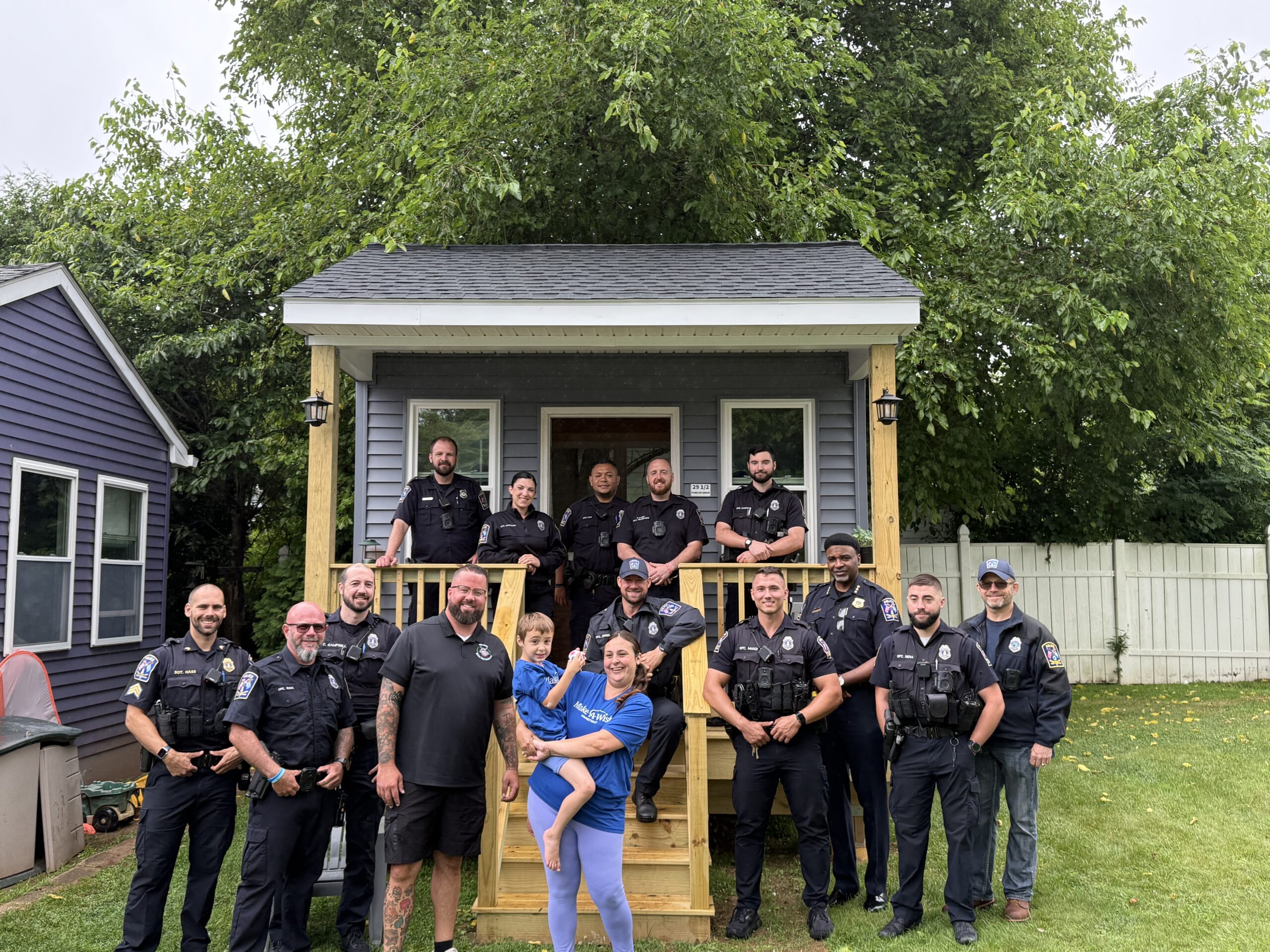
[…] Read More: American School for the Deaf Hopes to Use $2 Million in Federal Funds to Increase […]
[…] American School for the Deaf Hopes to Use $2 Million in Federal Funds to Increase Support Services […]